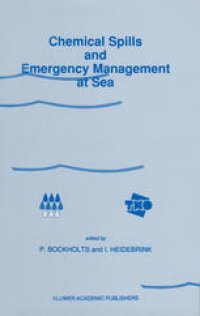
Ebook: The European Information Society: Leading the Way with Geo-information
Author: Jeffrey A. Bergamini Dr. Michael Haungs (auth.) Sara Irina Fabrikant Monica Wachowicz (eds.)
- Tags: Geographical Information Systems/Cartography, Earth Sciences general
- Series: Lecture Notes in Geoinformation and Cartography
- Year: 2007
- Publisher: Springer-Verlag Berlin Heidelberg
- Edition: 1
- Language: English
- pdf
The Association of Geographic Information Laboratories for Europe (AGILE) conferences provide a multidisciplinary forum for an increasingly varied landscape of scientific knowledge production and dissemination, to th GI Scientists from around the world. This year’s landmark 10 AGILE Conference, held at the top of Europe in Aalborg, Denmark, brought a number of significant changes to the well-established conference series. For the first time the call for papers included a full-paper submission track of original, unpublished, fundamental scientific research, the results of which you will find published in this volume. The response for this call provides ample evidence that GI Science and Systems are alive and well in Europe. Twenty-eight papers (out of 62 submissions) were accepted for this volume (acceptance rate: 45%). Judging by the author’s affiliations in this volume, the diverse AGILE Community includes (but is not limited to) computer scientists, geographers, geomatic engineers, GI Science pr- titioners, just to mention a few. The breadth of submissions reflects a vibrant and globally interc- nected GI Science community. You will find contributions from all four corners of Europe, as well as from China, Japan, and the United States.
This book presents a state-of-the-art overview of ongoing GIScience research that has been presented at the 10th Conference of the Association of Geographic Information Laboratories for Europe (AGILE), held in Aalborg, Denmark.
Included are 27 fully peer-reviewed papers not only covering basic GIScience research themes such as interoperability, ontology, data representation, usability, and data quality, but also ongoing research on technological advancements (i.e., spatial web services and spatial data infrastructures), as well as applied research on environmental modeling and management, including mobile and collaborative applications.